How Intrepid Travel is Helping To Decarbonize Tourism
Meet Dr. Susanne Etti, who is tasked with leading Intrepid's decarbonization strategy.
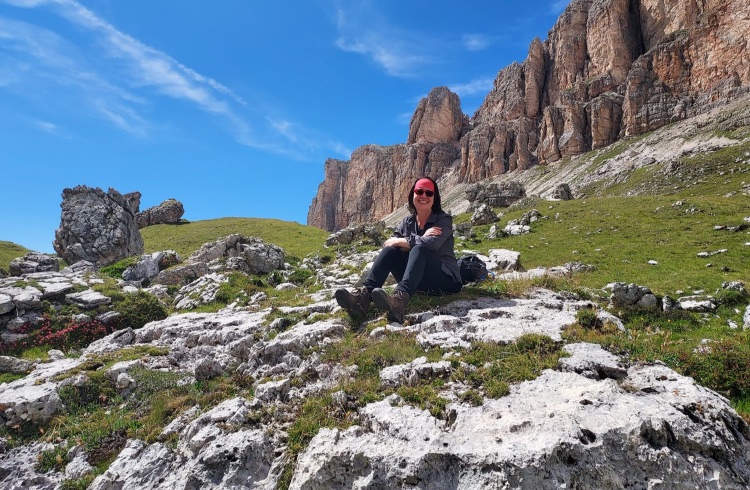 Photo © Images provided by Dr Susanne Etti
Photo © Images provided by Dr Susanne Etti
Melbourne-based Intrepid Travel, one of the world’s largest travel companies, has long been a leader in responsible, ethical and sustainable travel. Intrepid’s first Global Environmental Impact Manager, Dr. Susanne Etti, explains how she came to be at the helm of Intrepid’s latest, greatest mission: to decarbonize travel.
Growing up in Germany, with a love of nature and an interest in biology, spending any free time she had hiking and skiing in the Alps, Etti couldn’t have predicted that life’s winding path would eventually lead her to Melbourne, Australia, where she would become a passionate advocate for climate action in tourism.
This latest chapter in her life started in January 2019 when Etti – who has a Ph.D. in biology – joined Intrepid Travel as the adventure tour operator’s first Global Environmental Impact Manager. It’s a role that seems tailor-made for Etti and is integral to everything Intrepid does, given the company’s longstanding commitment to ethical, sustainable travel and climate action.
Straight out of the blocks, Etti helped Intrepid become the world’s first travel company to commit to a science-based emissions reduction target that aligns with a 1.5°C future, which was verified in 2020 by the Science Based Targets Initiative (SBTI). In 2022, Intrepid ramped this up by committing to SBTI’s long-term net zero target: a 90 per cent reduction in emissions by 2050, with carbon removal (not offsets) used to neutralize any remaining emissions. Etti was also involved in Intrepid becoming one of the first travel companies to declare a climate emergency and develop a climate action plan in 2020, and one of the first signatories to the UN-backed Glasgow Declaration on Climate Action in Tourism launched at COP26 in Glasgow in 2021. And these are just a few of her achievements so far.
So how did Etti get here and what does the future of travel look like to her?
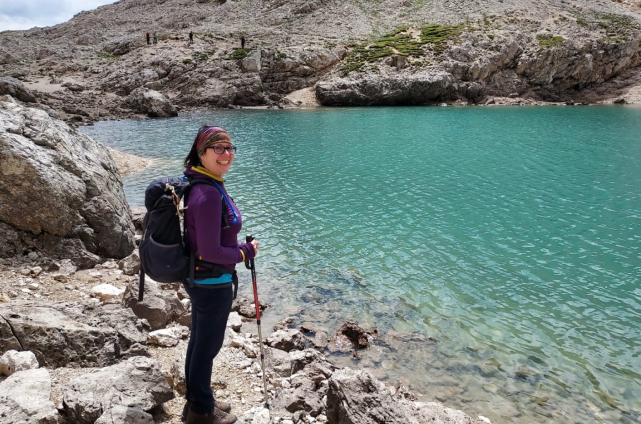
Was there a moment in your life when the climate crisis became real for you?
I think spending a lot of time in the European Alps as a child, on skis and in walking boots, I grew up being aware of glaciers and the fact that they were changing. Scientific knowledge about climate change wasn’t as advanced back then as it is today, but the conversation was definitely starting. Then, when I was in high school, there was a growing awareness of deforestation happening in the Amazon. I realized that if I studied biology it would give me an understanding of how the natural world works. I ended up doing my Master’s and Ph.D. theses on the impact of climate change on infectious diseases, specifically malaria and Lyme disease, and while I was at university I got to spend three months in the Ecuadorian rainforest, in the Amazon, doing field research, which had a big impact on me.
In what way?
Experiencing primary rainforest was quite magical, just seeing the enormous diversity of species there. I saw my first hummingbird, a tiny thing that weighs only three grams. I also saw first-hand the impact of deforestation; even if there is regrowth, you lose so much biodiversity. That experience made me realize I was on the right track studying biology and that I didn’t want to specialize in ornithology or taxonomy. I wanted to look at the bigger picture, see how all the various elements fit together, and use that knowledge to help change things for the better.
How did you get from studying biology to working in sustainability?
During my Ph.D., I worked part-time with a carbon-offsetting start-up and I got full-time employment with them when I finished my degree in 2005, which led to various consulting roles in corporate sustainability around the world [until 2019]. Leaving academia was a very conscious decision for me. I wanted to work with industry, in the business sector, and I thought that as a scientist I could bring some rigor to the conversation.
Was it also a conscious decision to work in the travel industry?
Not at all. How it happened was that I could see the climate crisis was intensifying, I wanted to work in the climate space and when I saw this role with Intrepid I was just really impressed with what they were doing. They were a certified B Corp [since 2018], they were carbon neutral way back in 2010, and their climate journey actually started in 2005 when everyone in senior management read The Weather Makers by Tim Flannery. An Inconvenient Truth came out around the same time and Intrepid took all its staff and customers to see the film. Then they got to work, measuring their carbon footprint. They just have this “we want to do more” attitude across the entire company, from the board to their trip leaders, and that seemed a great match for my experience.
What does your work at Intrepid involve?
In one sense, I’m continuing what Intrepid has been doing since 2010 and scaling it up so we can improve what we do. Through Intrepid’s annual Greenhouse Gas Inventory, for instance, we now know exactly what the carbon footprint is per passenger per day for every trip we run. That’s exciting because we can now give more precise data to our product team that creates all our trips and use that data to ramp up decarbonization. It’s no longer about carbon neutrality; that’s not going to save us from the climate crisis. Our focus now is on decarbonizing all our operations, including all the trips we run, worldwide. My job is basically to ensure that climate action and decarbonization are top of mind throughout the company and all it does.
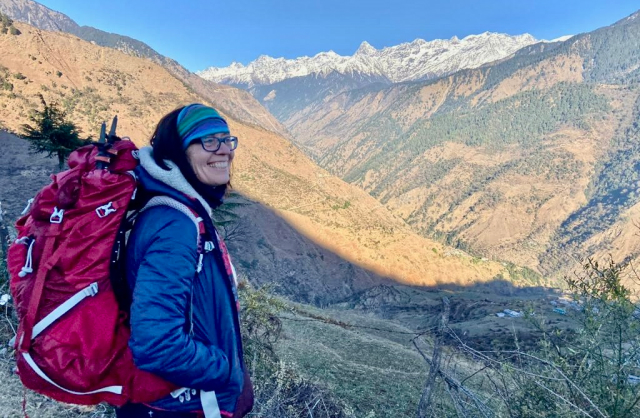
How did the pandemic pause in travel affect sustainability in the industry?
I think it helped us all start working together more on climate action. When I joined Intrepid, I really wanted to help create change across the whole industry and during the pandemic, I became really focused on helping other travel companies – most of which are small-medium businesses that don’t have someone like me on staff – use that time when they weren’t able to run trips, to act on climate change. We encouraged them to sign Tourism Declares a Climate Emergency. We published a free 10-step guide to decarbonizing your travel business. We made available our methodology around measurement and decarbonization because unless you measure, you don’t know how to reduce your emissions. And on the animal welfare side, we created the Animal Welfare Policy Toolkit for companies that include animals in their tour offerings, which we developed with World Animal Protection.
What do you love about your job?
I love engaging with people to create change. I try to make sure that every single staff member within Intrepid understands that they’re part of decarbonization. I was trained by Al Gore in 2011 as part of The Climate Reality Project to present his slideshow from An Inconvenient Truth, so I hold virtual sessions with our staff around the world [Intrepid has more than 1,700 staff members] to explain why we need to change and help them figure out how they can change. It’s about developing a culture, and reminding people that climate action happens at every level.
Anything you don’t love about it?
While the measurement side is super important, it is extremely time-consuming. You want to be as accurate as possible and we’re always broadening our scope, adding more detail; for example, we’re counting working-from-home emissions now and the emissions of professional services we use. Coming out the other side of our annual Greenhouse Gas Inventory is always a big relief!
What’s ahead for Intrepid in terms of reducing its environmental impact?
We’re really committed to our decarbonization strategy and staying on track to meet our near and long-term science-based targets. We’re also developing a biodiversity strategy because we don’t just have a climate crisis, we’re in a biodiversity crisis too. And we have an ongoing commitment to reducing plastic pollution, at all levels of our operations, working with our suppliers to provide, say, water filters or jerrycans on trips to avoid single-use water bottles.
What do you think “sustainable travel” will look like in 2030 and beyond?
I think aviation is the biggest challenge for the travel industry, so innovations around sustainable fuels will be critical. But there will also be changes in the way people travel, which we’re already seeing, like staying longer when we fly long-haul and using trains more. Intrepid is switching to high-speed trains in countries like Japan, for instance, to reduce short flights on certain trips. There’ll be changes in seasonality; the hiking season in Europe might extend into October, for instance, while August might become too hot for hiking.
As more and more people consider the impact of their travels, I think the industry will have to provide more responsible, sustainable, low-carbon trips. We know that travel improves our lives and often the places we visit, but it also has a huge carbon footprint, contributing around 8 per cent of global emissions, so it’s going become increasingly important that we all reduce our impact on the natural environment as much as possible.
Related articles
Simple and flexible travel insurance
You can buy at home or while traveling, and claim online from anywhere in the world. With 150+ adventure activities covered and 24/7 emergency assistance.
Get a quote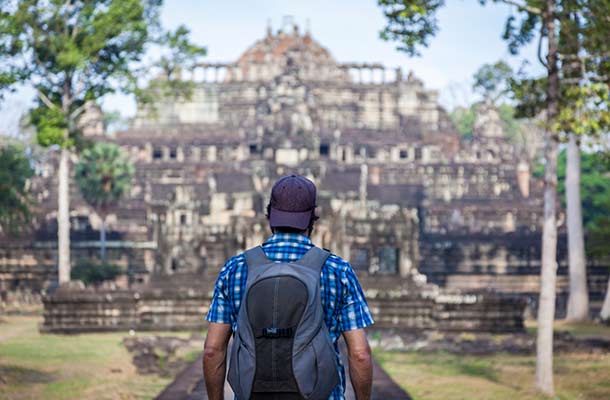
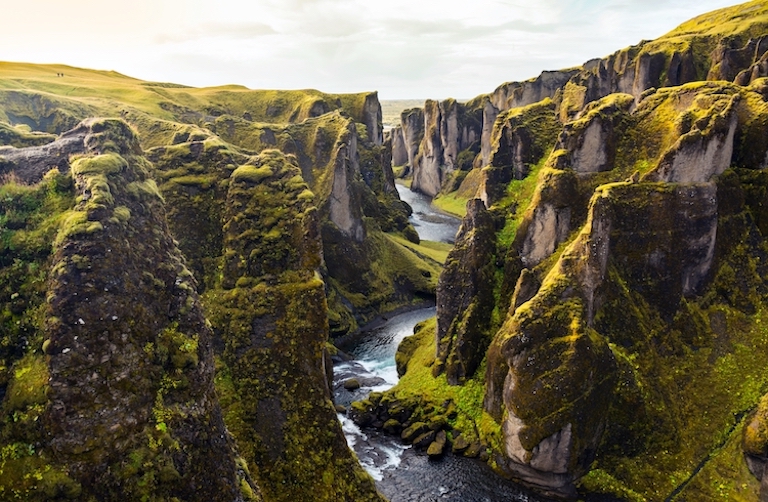
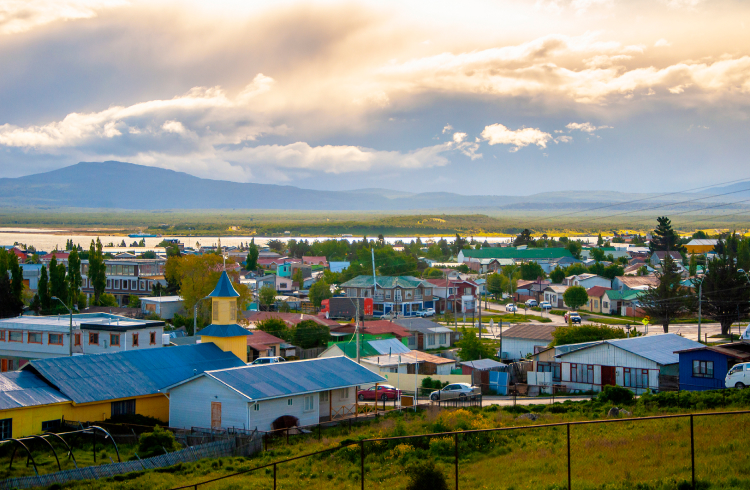
No Comments